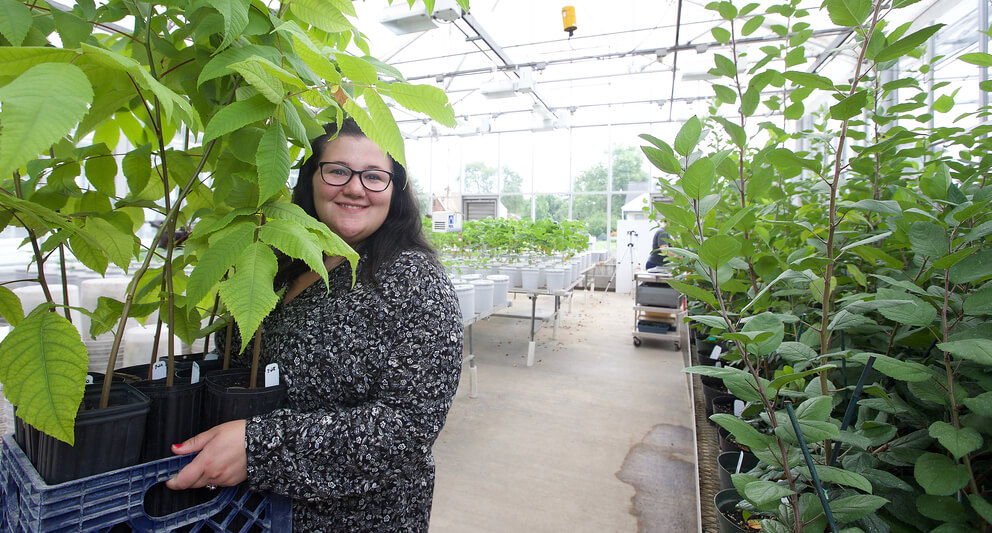PULSe graduate student earns prestigious USDA predoctoral award

Purdue Horticulture PhD candidate and Center for Plant Biology trainee Rachel McCoy is having a banner year. She is the first author of an article published in Horticulture Research, and her thesis research under Joshua Widhalm, assistant professor of horticulture, was validated and strengthened this spring with a U.S. Department of Agriculture (USDA) predoctoral award.
McCoy, of Indianapolis, earned a BS in biology at the University of Evansville before coming to the Purdue University Interdisciplinary Life Science Program (PULSe). With Widhalm’s guidance, she studies the metabolism of the black walnut tree, which produces its own natural herbicide called juglone. “We have known this for a long time, but we still don’t know how the plant makes juglone,” McCoy explains. Insight into the biosynthesis of juglone could lead to its applicability to other plants and potential to engineer it as a natural herbicide, she adds.
USDA’s National Institute of Food and Agriculture (NIFA) Fellowships Program provides funding to develop the next generation of research, education, and extension professionals in the food and agricultural sciences. McCoy was among a select group of outstanding predoctoral students who received the USDA NIFA award based on research that aligns with one of six Farm Bill priorities — plant health and production and plant products. The award funds two years of salary as well as supplies and travel.
“I was really excited,” McCoy says. “I think we put together a good application. My advisor and I have been working together for a long time, so we understand each other pretty well and communicate well, which is really is important in graduate research. He’s been really supportive.”
Given the low funding rate for these awards, receiving one enhances McCoy’s resume. “But more importantly, it’s validation that I can put together a good project plan, which will be important for research in the future,” she says. “Also having my own funding gives me a greater sense of independence with my research, has taught me about budgeting, and allows me the flexibility to travel to additional conferences.”
McCoy plans to complete her doctoral work by next May. Passionate about teaching, she hopes to land a faculty position at a smaller university. Based on her personal experience at an undergraduate institution of 2,600, “I want to be a part of that kind of education,” she says.
Her article, McCoy et al. Horticulture Research (2018) 5:67, is accessible here.